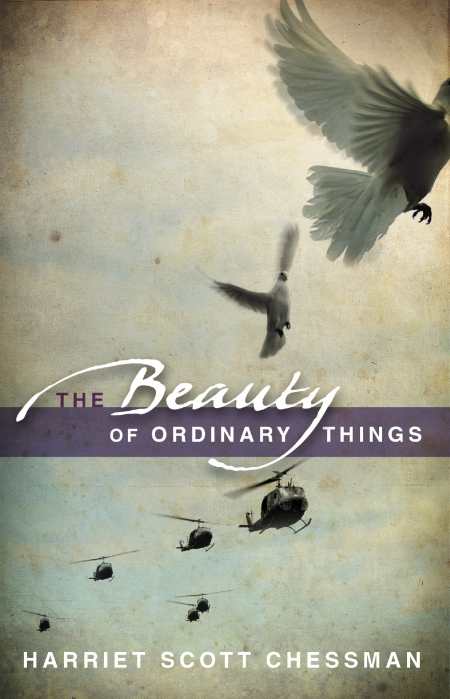The Beauty of Ordinary Things
The vivid realities of war, the challenges of love denied, and the graceful inner turmoil of a young novice in a cloister weave together in a beautiful étude of humanity.
Harriet Scott Chessman succeeds in writing a song of the soul in The Beauty of Ordinary Things. With well-chosen vignettes about three very different lives, this book is a brief and lovely argument against the separateness of people. It is likely to inspire gratitude for the many ways we are all connected.
Benny Finn is a Vietnam veteran who remembers the kind of man he was before he left and is drifting in the guilt and shame of his memories of combat. Believing that no one can understand, he is surprised by the closeness he feels to his brother’s girlfriend, Isabel. Chessman crafts their mutual attraction with restraint: their relationship does not follow the predictable path of forbidden love. Benny and Isabel share space and time together, mostly while carpooling, and they share confidences like old friends. Theirs is not an affair or a deception; they know they will continually be letting go of one another.
Sister Clare, who is a longtime friend of Isabel, is a novice living a secluded life in a cloister in the New Hampshire countryside. Grounded in the serenity of the pastures and gardens at the abbey, she is able to steady Benny and Isabel, but her own chosen path is no less complicated than theirs. Her love for these two friends and her desire to connect to the world outside the cloister complicates her call to serve God.
These three lives are quietly folded together, each person forgiving and needing the others. When Benny first meets Isabel, he says he “is like someone who doesn’t know how to sail a boat but who can’t stay off the water.” He flounders in memories of past relationships and of friends lost in combat until he discovers that “after a point you start to see that you can survive your own feelings, and the daydreams and nightmares that come to you. They don’t have to pull you off course.”
Chessman’s characters are shown as feeling unworthy of each other yet being made whole by each other. Her writing is like poetry spoken in real, soft voices. It would be hard to close this book and not feel changed.
Reviewed by
Sara Budzik
Disclosure: This article is not an endorsement, but a review. The publisher of this book provided free copies of the book to have their book reviewed by a professional reviewer. No fee was paid by the publisher for this review. Foreword Reviews only recommends books that we love. Foreword Magazine, Inc. is disclosing this in accordance with the Federal Trade Commission’s 16 CFR, Part 255.

